When I call the map() function on a parsed JSON object (in the mapStocks() function as shown below), it fails if I place the toStock() function inside the StockService class. However, if I declare the function as a "global" function outside the StockService class, it doesn't throw an error.
import { Injectable } from '@angular/core';
import { Http, Headers, Response } from '@angular/http';
//import { Observable } from 'rxjs/Rx';
import 'rxjs/add/operator/map';
import 'rxjs/add/operator/toPromise';
import { Stock } from './stock';
@Injectable()
export class StockService {
private baseUrl: string = 'https://www.vendor-api-website.com';
constructor(private http: Http) {
}
getStocks(): Promise<Stock[]> {
console.log('Loading stocks...');
let stocks$ = this.http
.get(`${this.baseUrl}/api/getInventory`, { headers: this.getHeaders() })
.map(this.mapStocks)
.toPromise()
.catch(this.handleError);
return stocks$;
}
private getHeaders() {
let headers = new Headers();
headers.append('Accept', 'application/json');
return headers;
}
private handleError(error: any): Promise<any> {
//console.error('An error occurred', error); // for demo purposes only
return Promise.reject(error.message || error);
}
private mapStocks(response:Response): Stock[] {
console.log('Mapping inventory...');
// this fails...
return response.json().map(this.toStock);
// ..but this is okay?
//return response.json() as Stock[];
}
// This succeeds if declared as a function and placed outside the class
private toStock(stockObject:any): Stock {
console.log('toStock called');
let stock = <Stock>({
id: stockObject.id,
code: stockObject.code,
name: stockObject.name,
description: stockObject.description,
supplier: stockObject.supplier,
cost: stockObject.unitPrice * stockObject.minQuantity,
quantity: stockObject.minQuantity
});
console.log('Parsed stock:', stock);
return stock;
}
}
As you can see, we need the toStock() function in order to do some calculations before assigning it to our own array of Stock objects.
The error that is thrown if I declare the toStock() function in the StockService class is this:
 Could anyone please explain why this is so? Is it a limitation of TypeScript?
Could anyone please explain why this is so? Is it a limitation of TypeScript?